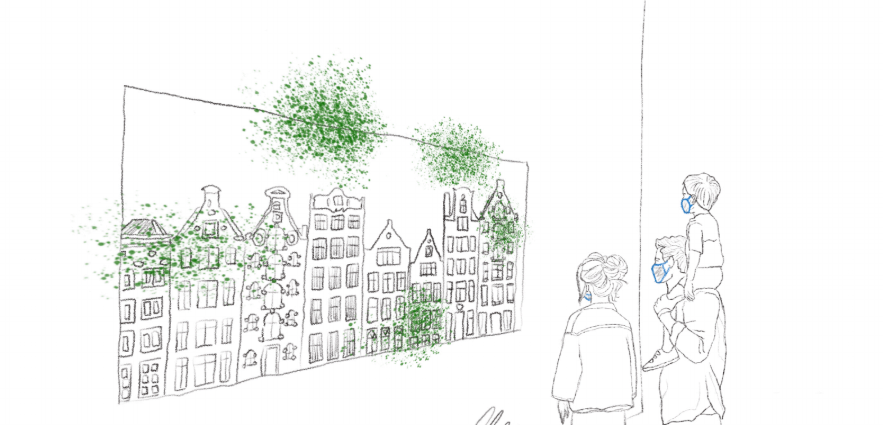By Juni Moltubak
A simple explanation of Western pride and COVID-19
The Netherlands has been described as the weakest link in the chain of European resistance against the Corona-virus, and their modest approach resembles that of a number of other western-European states. This will have grave consequences, but not necessarily for themselves.
When I a week ago discussed this issue with my Dutch friends I claimed, based on examples from other parts of the world, that it is possible to limit the spread of COVID-19. Yes, they answered, but at what cost? Over the course of the past week the Netherlands has in fact chosen to increase and incorporate measures to limit the spread, but these are both too little and too late. It is now clear to me that the Dutch are well aware that they are able to stop the spread. The problem is that they don’t want to.
But the Netherlands is not the only country guilty of this self-imposed ignorance. Western Europe, as a whole was distressingly late to the game, compared to, amongst others, South Korea, Taiwan and Canada. Yes, these countries were amongst those hardest hit by the SARS-virus in 2002, and are therefore better prepared and more aware of the consequences of a pandemic. But that alone does not explain the entirety of Western Europe’s inadequate response. Governments are justifying their (in)action by aiming for a vague idea of herd immunity. Why do they keep doing so, when they are confronted with facts that clearly show what grave consequences this will have for our society and economy?
There are mainly three reasons why we choose to look away from the severity of the situation, despite it practically hitting us in the face.
“At what cost?”. The first and most striking reason is our instinct-like tendency of protecting Western principles and standards, no matter what. Liberal democracy, human rights, basic freedoms – these are the building blocks of our individual as well as our collective identity as Europeans. Not even the prospect of a mass-extinction of the elderly nor that of a health care system in collapse can make us give up our individual rights and freedoms.
“The Netherlands always puts its economy first”. That is what my Dutch flatmate told me when I asked her why the government didn’t close down the shops, cinemas and gyms. We don’t want to pause, we don’t want to stop the money flow before we know that it is absolutely necessary. And in addition to this is the fact that we can afford to wait until it is absolutely necessary. In other words, we can afford letting the situation go to hell for a little while, as long as it means we haven’t put ourselves in difficulty for nothing. We know that we have a buffer, an oil fund, or a parent that can help us out in a pinch, so if we wait a couple of weeks extra before imposing Chinese measures, we know that we will be all right either way.
“Bad things don’t happen to good people”. Which brings me to the third and final reason why the alarm bells rang for deaf ears in Western Europe as COVID-19 began to spread. We have, through decades (and in the case of the Netherlands, centuries) of safety, wealth and prosperity, gotten ourselves lulled into a robust and complete feeling of safety. And that’s not without a reason, considering fear of war, hunger and uncertainty usually have belonged to the past – or to other parts of the world. But this feeling can also have negative consequences. Take for example the fact that Iceland, Denmark and Norway are the top-three most chlamydia-infected countries in the world, simply because we refuse to use condoms. Or that Norwegians are leading the polls when it comes to skin cancer, despite the fact that we hardly see the sun six months a year. We refuse to believe that scary or dangerous things can happen to us, and act thereafter. The same is true, of course, when it comes to the coronavirus.
I am not pointing a moralising finger here, mostly because it wouldn’t be able to penetrate the western ego anyways. But the fact is that we didn’t take COVID-19 seriously before it threatened with kicking the door in, and even then we had the time, money, and consciousness to wait. Because we are not used to losing, and because we know that we probably won’t lose this time around either.
Edited by Zuzanna Mietlinska
Artwork by Chira Tudoran

